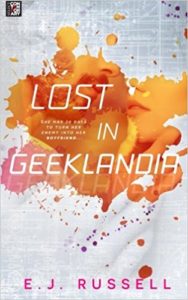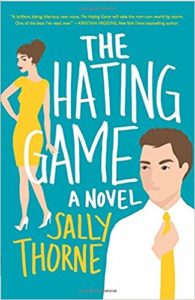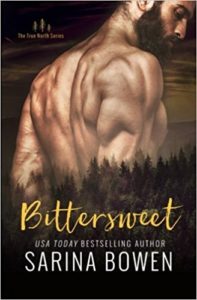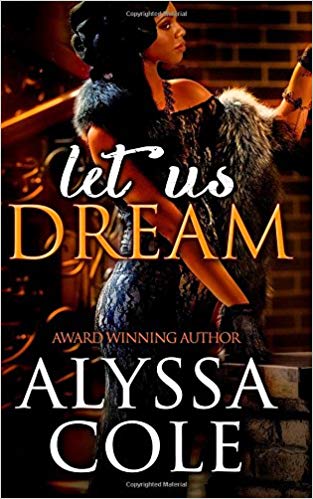 Let Us Dream is another slim but packed novel like Cole’s Let It Shine—and it’s equally good. This one’s set 50 years earlier, in 1917 Harlem. The heroine is Bertha Hines, a cabaret owner who has a secret that keeps her constantly nervous and a past that keeps her fairly buttoned-up. Amir Chowdhury is a Muslim Indian in the U.S. illegally, trying to make his way.
Let Us Dream is another slim but packed novel like Cole’s Let It Shine—and it’s equally good. This one’s set 50 years earlier, in 1917 Harlem. The heroine is Bertha Hines, a cabaret owner who has a secret that keeps her constantly nervous and a past that keeps her fairly buttoned-up. Amir Chowdhury is a Muslim Indian in the U.S. illegally, trying to make his way.
Bertha isn’t satisfied with the status quo at all and is trying to participate in the suffragette movement, but the white women who run it aren’t welcoming to a black woman cabaret owner (ostensibly because of her career choice, but probably really because of her race). So instead she educates her employees on politics and encourages them to advocate for the vote for women among their male clientele.
Amir is an experienced cook, but his options are limited because of his status, so he ends up washing dishes at Bertha’s establishment. They butt heads early on. However, they find they each have something the other needs—Bertha can teach him about American politics and he can teach her how to dance more authentically (she does an Indian-inspired dance for the club). Working closely together brings their simmering attraction to the forefront. And when Amir and Bertha help one of Bertha’s employees give birth, they bond over the moment and realize there really is something between them.
But it’s not easy. Bertha’s got the police wanting to shut her down and Amir’s illegal—and they’re not even the same race. That last point was an interesting one for me—could they even marry (or were the laws written solely to protect the “purity “—ugh—of whites?)? Because nowadays, they could marry and Amir could come in legally (I mean, it would take some work, but could be done). But I wasn’t sure how it would work back then. Cole doesn’t even go there, but it didn’t stop me from wondering.
There are some fairly heartbreaking moments, like when Amir sees a white man outside the club and instinctively calls him “sir.”
He cringed at how the honorific slipped out. Why should he call some White man lounging in an alley like an urchin “sir”? The only power that the man held over him was the color of his skin, but that was all that was necessary in America, it seemed. Back home, too, now.
Overall, this is a nice book. Not too steamy but full of interesting historical details in another period you don’t see much (especially in romance). If you liked Let It Shine, definitely check this one out, or if you’re just curious about a different time.
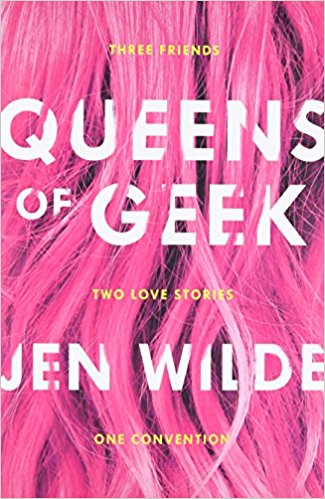 Queens of Geek is technically a YA romance, not something I usually review here (generally they’re too tame, but I made an exception because it was what I read this week and the characters are all eighteen so it could be considered New Adult, which I would review here). So.
Queens of Geek is technically a YA romance, not something I usually review here (generally they’re too tame, but I made an exception because it was what I read this week and the characters are all eighteen so it could be considered New Adult, which I would review here). So. Another enjoyable read from Bowen. Mayberry is new to me, but their styles meshed together seamlessly.
Another enjoyable read from Bowen. Mayberry is new to me, but their styles meshed together seamlessly. Jennifer Sylvester is kind of a joke in Green Valley, Tennessee, where she’s know as the Banana Cake Queen because—well, you can guess why. The recipe is a family secret. People don’t take her seriously. One of the locals called her “stranger than a vegetarian at a barbecue.” And on top of that, her parents are bullies, especially her mom. She’s forbidden to wear anything but her Sunday best clothes out in public. Now, she’s definitely old enough to be living on her own, but with the way her family treats her (borderline abuse), it’s really difficult for her to move out. They have her working full-time in the family bakery, but they don’t give her a salary. What she wants more than anything is to start a family, but with her so isolated, she never really meets men in any useful way.
Jennifer Sylvester is kind of a joke in Green Valley, Tennessee, where she’s know as the Banana Cake Queen because—well, you can guess why. The recipe is a family secret. People don’t take her seriously. One of the locals called her “stranger than a vegetarian at a barbecue.” And on top of that, her parents are bullies, especially her mom. She’s forbidden to wear anything but her Sunday best clothes out in public. Now, she’s definitely old enough to be living on her own, but with the way her family treats her (borderline abuse), it’s really difficult for her to move out. They have her working full-time in the family bakery, but they don’t give her a salary. What she wants more than anything is to start a family, but with her so isolated, she never really meets men in any useful way. I was new to HelenKay Dimon with this book. This is another romantic suspense recommended at RT, this time for its strong heroine. So again I delved into the romantic suspense genre.
I was new to HelenKay Dimon with this book. This is another romantic suspense recommended at RT, this time for its strong heroine. So again I delved into the romantic suspense genre. This book was my introduction to Victoria Dahl, who instantly became my favorite romance writer. I began devouring everything else she wrote, starting with the rest of the series. One overall comment I have is that the original covers on the series bely the sexiness packed within.
This book was my introduction to Victoria Dahl, who instantly became my favorite romance writer. I began devouring everything else she wrote, starting with the rest of the series. One overall comment I have is that the original covers on the series bely the sexiness packed within. In Keepsake, Bowen continues the story of the Shipley farm, moving us back there full-time. This time it’s Zachariah’s story. Zach grew up in a polygamous cult and got kicked out for a small transgression (mostly because he was a young man, when the old men wanted the girls all for themselves). Zach’s been working at the Shipley farm for a while and he’s beginning to feel that his time there is coming to a close. Not because he wants it to be, but because he thinks they need it to be.
In Keepsake, Bowen continues the story of the Shipley farm, moving us back there full-time. This time it’s Zachariah’s story. Zach grew up in a polygamous cult and got kicked out for a small transgression (mostly because he was a young man, when the old men wanted the girls all for themselves). Zach’s been working at the Shipley farm for a while and he’s beginning to feel that his time there is coming to a close. Not because he wants it to be, but because he thinks they need it to be.




